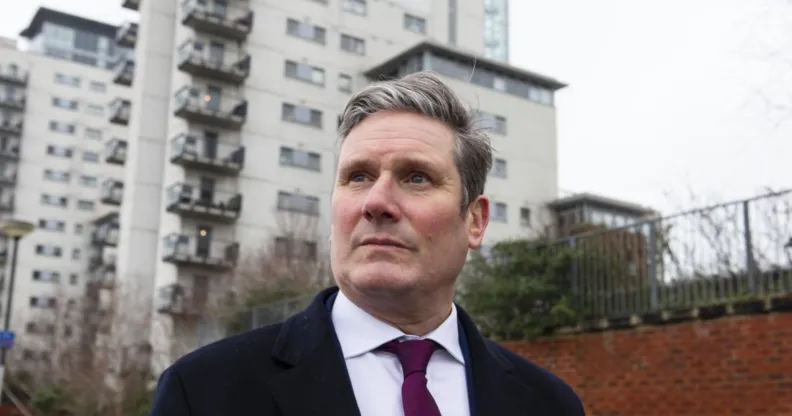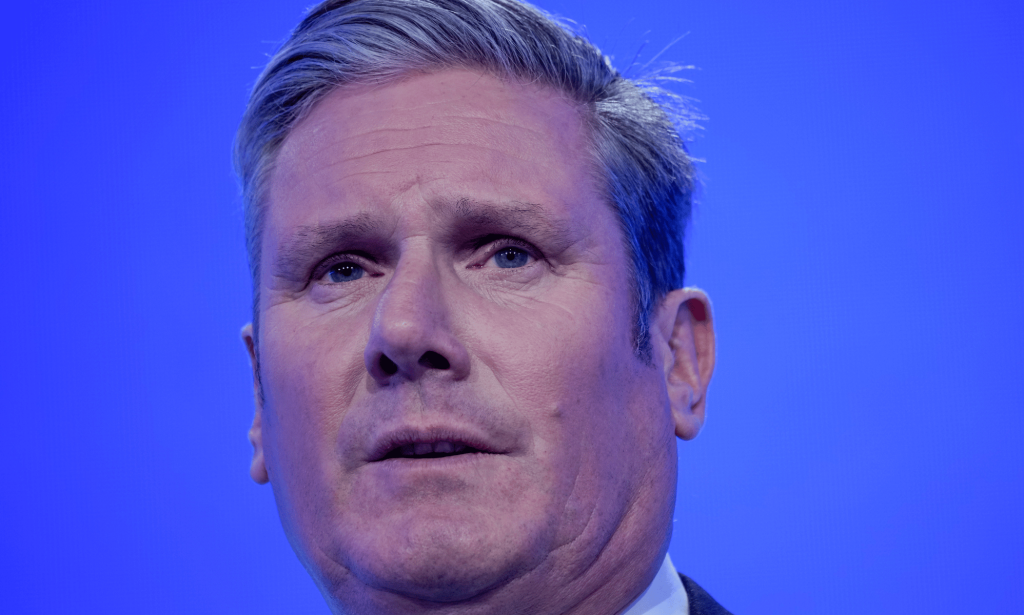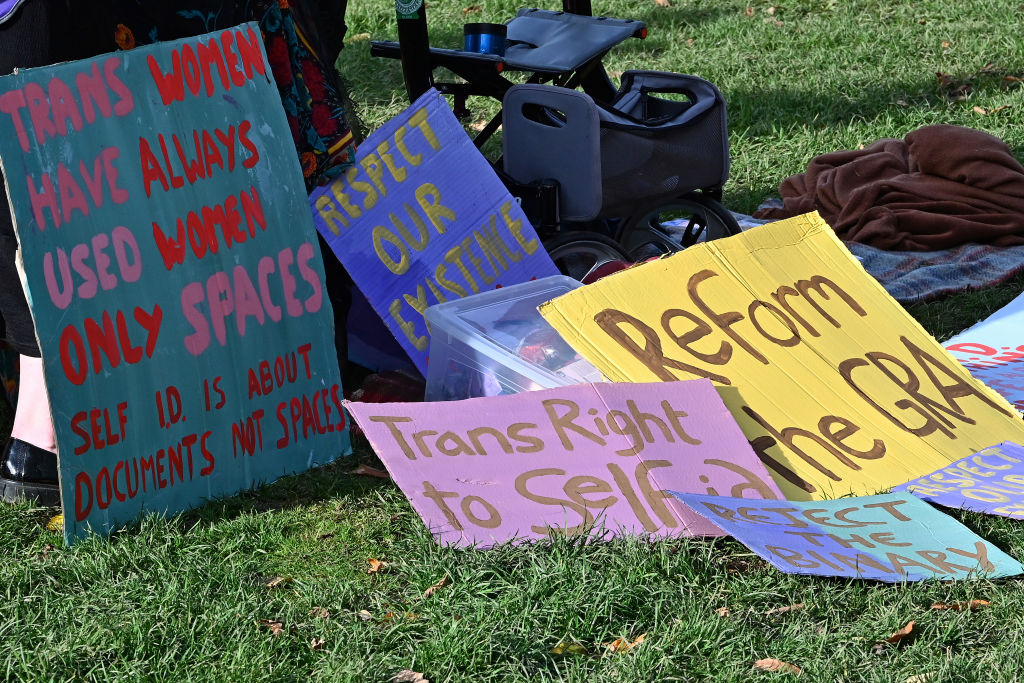Keir Starmer says he wants to ‘modernise’ trans laws but thinks 16 is too young to change gender

Keir Starmer has said he thinks 16 and 17 year olds are too young to get a Gender Recognition Certificate. (Getty)
Labour leader Keir Starmer has said he wants to “modernise” gender recognition laws, but he has “concerns” about recently-passed reforms in Scotland.
Speaking to Laura Kuenssberg on her Sunday morning BBC show, Starmer admitted there are “indignities” in the gender recognition process as it currently stands.
However, he also said he doesn’t think 16 and 17 year olds should be allowed to legally transition – and he refused to say whether he supported the UK government’s threats to block Scotland’s bill.
“I have concerns about the provision in Scotland, in particular the age reduction to 16 and in particular the rejection of our amendment in relation to the Equalities Act,” Starmer said.
“But across the whole of the area, I think we should modernise the law.”
Starmer continued: “I think we need a respectful debate that recognises the different arguments that are being made.
“At the moment, this is being treated as a political football from start to finish and I don’t think that actually advances the cause of anyone.”

When pressed on whether he thinks 16 year olds are old enough to legally change their gender, Starmer replied: “No, I don’t think you are.”
Keir Starmer to ‘wait and see’ if government blocks Scottish gender reform
After the Scottish parliament passed the Gender Recognition Reform (Scotland) Bill in December, the UK government immediately threatened to block it by invoking Section 35 of the Scotland Act – a provision that allows Westminster to stop a bill from going for royal assent in certain cases.
When asked whether he would consider blocking the bill if he was prime minister, Starmer said he would “wait and see” what the government decides to do.
“They floated a number of ideas in the media last week… let’s actually see what they put on the table,” he said.
The bill received broad support from Scottish Labour – when asked if they were wrong to support the bill, Starmer replied: “Well that was a matter for Scottish Labour. I’m telling you what the position is in relation to the whole Labour Party.”

He added: “Our position is we want to modernise the legislation and to make sure that some of the indignities that are there in the process are taken out of the process.”
LGBT+ Labour Scotland expressed disappointment with Starmer’s comments shortly after the interview aired.
“Contrary to what was said, a Labour amendment on the Equality Act WAS accepted at Stage 2, and Scottish Labour backed the age changes in the bill, with increased protections of six months wait,” LGBT+ Labour Scotland tweeted.
The group added: “Whatever you think of the GRR, this attack on democracy should be opposed by Labour.”
Scotland’s bill will streamline gender recognition process
The Gender Recognition Act became law in the UK in 2004. Once seen as a groundbreaking piece of legislation, it has become increasingly outdated, with trans people and advocates warning that it’s in urgent need of reform.
Plans drawn up under Theresa May to modernise the process were ultimately dropped in the face of pressure from anti-trans groups, which led to the Scottish government pushing ahead with its own law.
A Gender Recognition Certificate (GRC) affects birth certificates, death certificates and marriage licences, but doesn’t confer any additional rights.
It does not affect driving licences, passports, NHS registration documents or employment records.
Among a number of other reforms, the Scottish bill would allow 16 and 17 year olds to obtain a GRC. Those aged under 18 would have to prove they had been living in their correct gender for six months – double the time required for those aged 18 and over.

The Scottish government said introducing gender recognition for those aged 16 and over was keeping in line with other rights people gain at that age. In Scotland, people aged 16 and over can vote, get married and leave home without their parents’ consent.
They can also join the army, have access to more banking facilities, and leave school.
The UK government has never used Section 35 of the Scotland Act to block a piece of legislation before – some have warned doing so could trigger a constitutional crisis.
Maggie Chapman, a Scottish Greens MSP, told PinkNews: “If they actually go through with their threat to either block the bill from receiving royal assent or block the implementation of it… I think that signals that this becomes about something much more than the issue of self-declaration – this becomes a constitutional crisis, I think.”
Such a move would also show that the Tories are “out to get devolution”, Chapman said.
How did this story make you feel?

